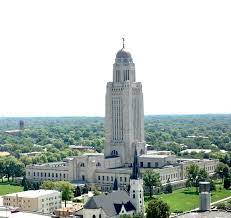![]()

The Nebraska Legislature returns from a 4-day Easter break today, still looking to pass its first bill of the year – thanks to an on-going filibuster of all measures by opponents of a bill barring gender-affirming treatments for minors.
Some issues are still in committee, including two legislative proposals to implement the voter ID constitutional amendment passed by voters last year.
One requires a notary’s signature on mail-in ballots and the other eliminates voting by mail with a handful of exceptions.
Government, Military, and Veterans Affairs Committee Chairman Senator Tom Brewer of Gordon tells the Nebraska Examiner he expects both ideas to be dumped with something new and “narrower” being sent to the floor.
Brewer said he expected to have a working draft for the committee to start from as early as today. He hopes the panel can settle on new language this week or next and vote to send the new bill to the full Legislature by the end of the month.
Brewer wants to keep it “narrowly focused on what the people approved” last year which said “before casting a ballot in any election, a qualified voter shall present valid photographic identification in a manner specified by the Legislature.”
He thinks the new version is likely to allow spouses, caregivers or significant others to verify a voter’s identity before a person sends in a ballot, and said it won’t include Bayard Senator Steve Erdman’s bills ending “no excuse” voting by mail for all but those serving in the military or living in elder care.
Part of the reason Brewer is ready to move on the bill now is that the committee last week received legal opinions from the Attorney General’s office on some of the language of the earlier proposals.
Senator Danielle Conrad of Lincoln told the Nebraska Examiner that she is encouraged by Brewer and the committee’s willingness to accept factual criticism about earlier proposals, and that they’re working to identify “the best models from our sister states that carry out the will of the people but minimize voter suppression.”
